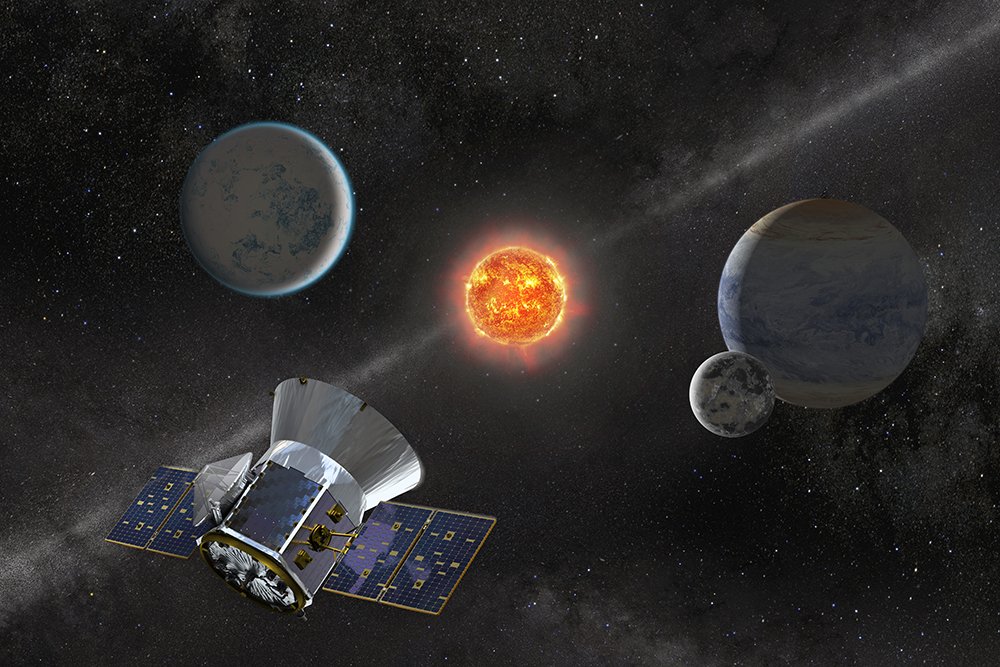All About: NASA telescope, Deep-sea robots, Lunar space station
A planet-hunting orbital telescope designed to detect worlds beyond our solar system discovered two distant planets this week five months after its launch from Cape Canaveral, Florida, officials said on Thursday.

NASA telescope discovers two new planets five months after launch
A planet-hunting orbital telescope designed to detect worlds beyond our solar system discovered two distant planets this week five months after its launch from Cape Canaveral, Florida, officials said on Thursday. NASA's Transiting Exoplanet Survey Satellite, better known as TESS, made an early discovery of "super-Earth" and "hot Earth" planets in solar systems at least 49 light-years away, marking the satellite's first discovery since its April launch. TESS is on a two-year, $337 million mission to expand astronomers' known catalog of so-called exoplanets, worlds circling distant stars.
Deep-sea robots reveal mineral riches in the abyss
From the safety of their research vessel, scientists are exploring one of Earth's last frontiers - the sea floor - to discover more about valuable minerals vital in the manufacture of smartphones. The scientists, from the University of Bergen in Norway, are sending robots 2,500 meters (8,000 feet) down into the waters between Norway and Greenland, to try to understand the environments potentially rich with rare earth minerals.
Argentina bets on $600 million satellite to boost agriculture sector
Argentina is launching a new microwave imaging satellite to monitor natural disasters and soil moisture, in a long-term bid to bolster the farm sector, an industry that has historically been the backbone of the country's economy. Scheduled to launch on a SpaceX Falcon rocket from Vandenberg Air Force Base in California on Oct. 6, Argentina's SAOCOM 1a satellite "is going to boost the high-quality precision agriculture Argentina relies on," President Mauricio Macri told farmers and industry representatives last week.
Russia throws doubt on the joint lunar space station with U.S.: RIA
Moscow may abandon a project to build a space station in lunar orbit in partnership with U.S. space agency NASA because it does not want a "second fiddle role," a Russian official said on Saturday. Russia agreed last year to work with the U.S. National Aeronautics and Space Administration (NASA) on plans for the moon-orbiting Deep Space Gateway, which will serve as a staging post for future missions.
ALSO READ
Learnt a lot throughout IPL last year, says GT Pacer Mohit Sharma
BJP's Birbhum LS candidate was responsible for killing people in Cooch Behar during last assembly polls: Mamata Banerjee.
"What we did in last 10 years is just the trailer": PM Modi says plenty more to come if NDA elected for third term
Cruise ship leaves Spain at last after Bolivians' visa row
Over 80 pc people support cutting plastic production to save biodiversity, climate: Survey










